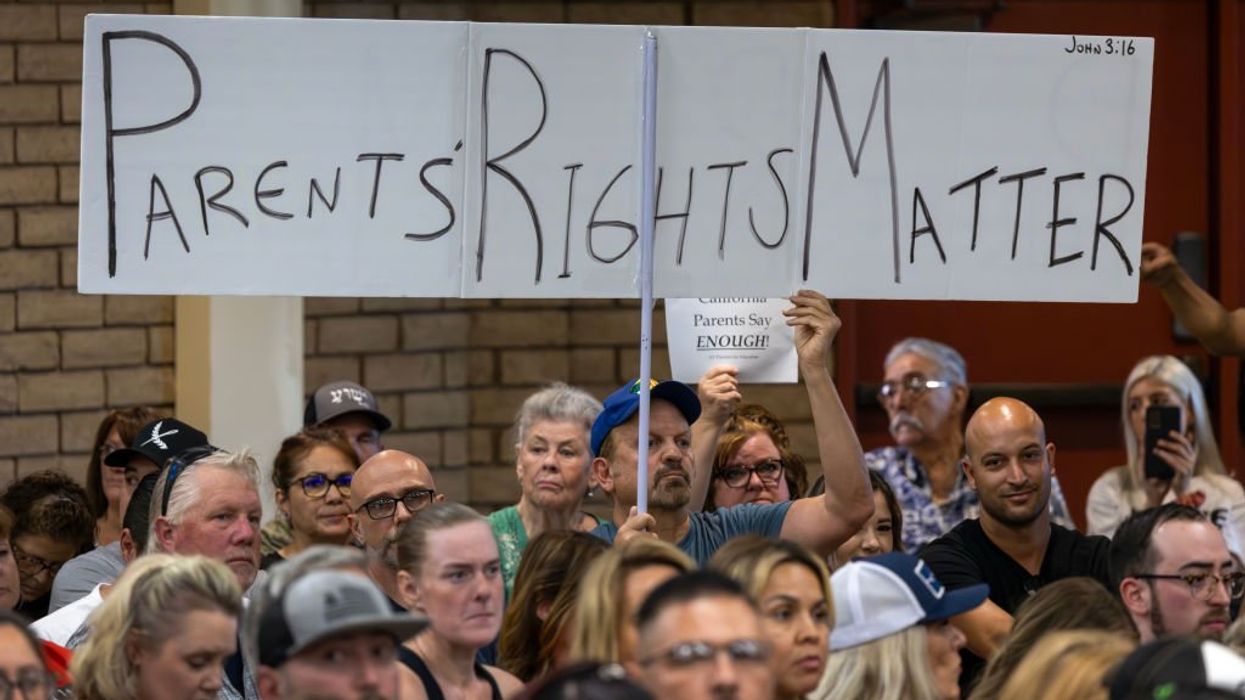
David McNew/Getty Images

If courage is seen merely as a contagion, parents might only find the strength to support and defend their children when bolstered by a supportive community.
We often hear the phrase “courage is contagious.” This suggests that courage is something that spreads from one person to another, igniting bravery among groups through shared influence. While the sentiment is well-intentioned, it inadvertently suggests that courage is fleeting and dependent on external validation or support. Instead, we should focus on making courage a habit, one that is cultivated and maintained independently of others’ influence.
When we say courage is contagious, we imply that it is temporary and reliant on our social environment. If we surround ourselves with financially savvy people, we are likely to become more financially aware, reading wealth-building books and listening to relevant podcasts. Similarly, if we hang out with fitness enthusiasts, we may adopt healthier habits, such as working out more and eating cleaner.
When courage is a habit, it becomes an intrinsic part of who we are, not something that waxes and wanes based on our surroundings.
Conversely, if our social circle includes heavy drinkers, even the most moderate drinker might find himself indulging more frequently. This “contagion effect” means that when we remove ourselves from these influences, we tend to revert to our default habits. A person who isn’t naturally inclined to drink heavily will likely return to moderate drinking once they leave the heavy-drinking environment. The same principle applies to fitness and financial habits. Without the external influence, our behaviors revert to our natural inclinations.
This phenomenon underscores why viewing courage as contagious ultimately sets us up for failure. If we believe that courage is something we acquire from others, then our bravery becomes conditional upon our environment.
This is particularly concerning when it comes to the critical issue of parents standing up against political and sexual indoctrination in government-run K-12 schools. If these parents rely on a large group to muster the courage to support and defend their children, what happens when the group is no longer there?
Instead, we should view courage as a habit. Habits are built through consistent practice and become ingrained in our behavior, independent of external influences.
When courage is a habit, it becomes an intrinsic part of who we are, not something that waxes and wanes based on our surroundings. If courage is seen merely as a contagion, parents might only find the strength to support and defend their children when bolstered by a supportive community. If that community dissipates or their circumstances change, however, their resolve may falter.
If we view courage as a habit, parents can cultivate a steadfast bravery that persists regardless of external support. This kind of courage is rooted in personal conviction and consistent practice. It means that whether parents are surrounded by a thousand supporters or standing alone, their commitment to protecting their children remains unwavering.
To develop courage as a habit, it requires daily actions and decisions that reinforce bravery. This could mean speaking up at school board meetings, consistently questioning and challenging inappropriate school culture and content, and teaching children to think critically about what they are taught and not just accept the mainstream media narrative.
Over time, these actions become second nature, and the habit of courage becomes ingrained. Moreover, framing courage as a habit empowers individuals. It shifts the focus from needing external validation to relying on one’s own inner strength.
This internalization of courage is crucial in situations where immediate support might not be available. For instance, parents might find themselves in a position where they need to confront a teacher, school counselor, or school administrator alone. In such scenarios, the habitual courage will drive them to act to project their child, regardless of whether others are watching or supporting them.
In our current climate, where political and social pressures can be overwhelming, it is more important than ever to cultivate courage as a habit. Parents need to model this for their children, demonstrating that standing up for what is right should not depend on the presence of a supportive crowd but should be a consistent practice grounded in personal integrity.
While contagious courage might inspire temporary acts of bravery, habitual courage fosters enduring a lifetime of bravery. By cultivating courage as a habit, we ensure that our bravery is not subject to the whims of our environment but is a steadfast trait that empowers us to stand firm in our convictions, protect those who need it, and defend the freedoms granted us through our Constitution. Whether in the realm of parenting or personal endeavors, make courage your habit.
Alvin Lui